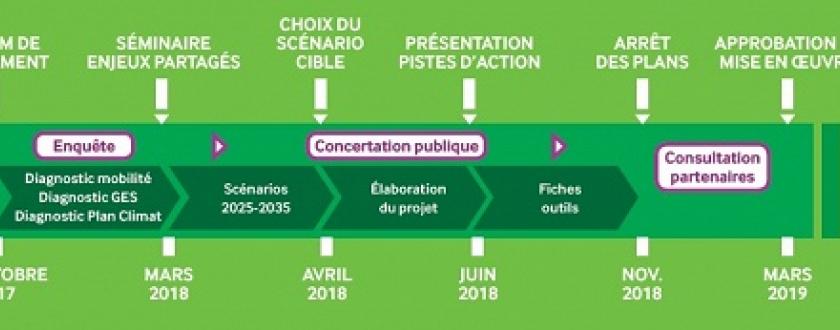Vallée de l'Ariège Territorial Climate-Air-Energy Plan (PCAET)
Description of the case study
In the French region of Occitanie, 74 intercommunalités of more than 20,000 inhabitants are obliged to put together specific plans to address the challenges posed by climate change on a regional level. The PCAET for Valle de l'Ariège is currently being developed with a view to starting implementation of its actions from 2019.
The PCAET is a regional sustainable development plan which primarily addresses climate change adaptation and mitigation as well as the development of renewable energy and reduction of energy use and of polluting emissions, all in a rural mountain comarca. In addition to the above, preparation of the plan has involved all key stakeholders from the region to ensure that its future implementation is transversal.
The main objectives of this PCAET are as follows:
- Diagnose the status of the region relative to the threats posed by climate change.
- Define climate change mitigation and adaptation strategies at regional level.
- Reduce energy use in the region.
- Achieve 100% energy from renewables by 2050.
- Improve air quality.
- Meet the international climate change commitments made by France.
The actions taken forward so far (2018) by the PCAET are as follows:
- Regional diagnostics on climate change vulnerability, the potential for renewable energy development, carbon sequestration in soil and forests, air quality and energy demand in different socio-economic sectors.
- Design of a regional strategy and action plan through to 2050 for reaching the objectives set.
The approved actions will be set in motion in 2019 via the corresponding action plan.
Case study developed and implemented as a climate change adaptation measure.
Vallée de l'Ariège Schéma de Cohérence Territoriale (SCOT).
Additional Information
The PCAET is promoted by the local government organisation Schéma de Cohérence Territoriale (SCOT) for Vallée de l'Ariège. This body has legal responsibility for designing the plan and having it ready for implementation by 2019. The design phase carried out between 2017 and 2018 has involved the collaboration of all stakeholders from the region via a Technical Working Group, a Technical Committee and a Pilot Testing Group. Cooperation agreements have been established with private stakeholders, newsletters have been created for those interested, online surveys have been set up for the general public and meetings have been held on different issues with the involvement of the key stakeholders.
Success: high level of participation of key stakeholders owing to participation and cooperation channels; compliance with initial deadlines; cross-cutting diagnostic exercise; the region is a pioneer in declaring itself a TEPOS (Territorio à Energie POSitive, the objective of which is to produce more renewable energy than it consumes by 2050).
Limiting: complexity of articulating a regional strategy with a high number of sectoral and administrative/political stakeholders.
A detailed cost-benefit study has not yet been conducted. The only available data is the approximate cost of the technical diagnostics carried out—some €100,000—added to which is communication campaign expenditure.
According to the Energy Transition for Green Growth Act 2015 (the LTECV), regions with more than 20,000 inhabitants must develop their own energy transition strategy. The PCAET for Vallée de l'Ariège has received technical and financial support from the EU's LEADER programme, ADEME Occitanie, the Conseil départemental de l’Ariège, the Syndicat départemental d’Energies de l’Ariège, the Pyrénées Ariégeoises Regional Natural Park and the electricity companies Enedis, GRDF and Groupement des Régies d’électricité communales.
2017-2019 (2 years - in progress)
Reference information
PYRENEAN CLIMATE CHANGE OBSERVATORY
Avenida Nuestra Señora de la Victoria, 8
22.700 - Jaca
Huesca - España
+34 974 36 31 00
info_opcc@ctp.org






